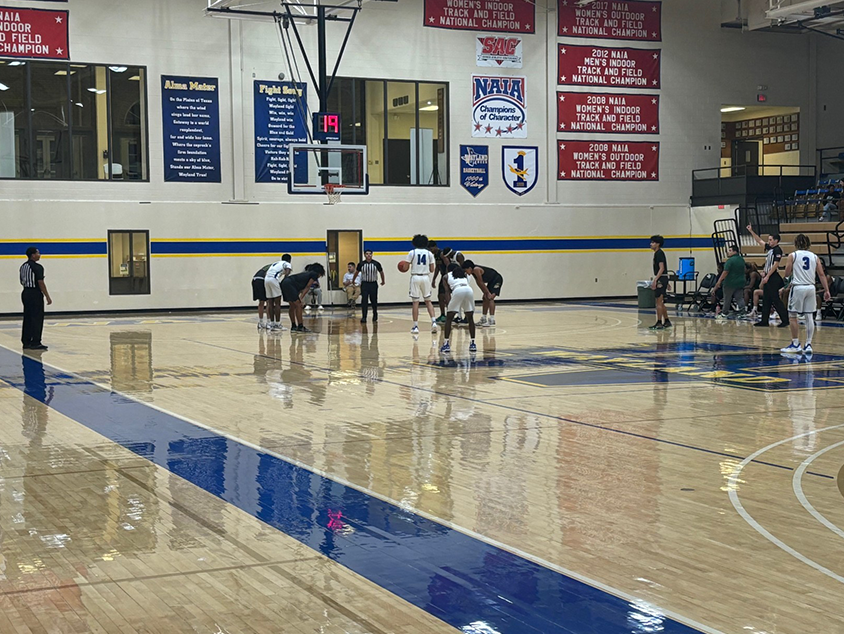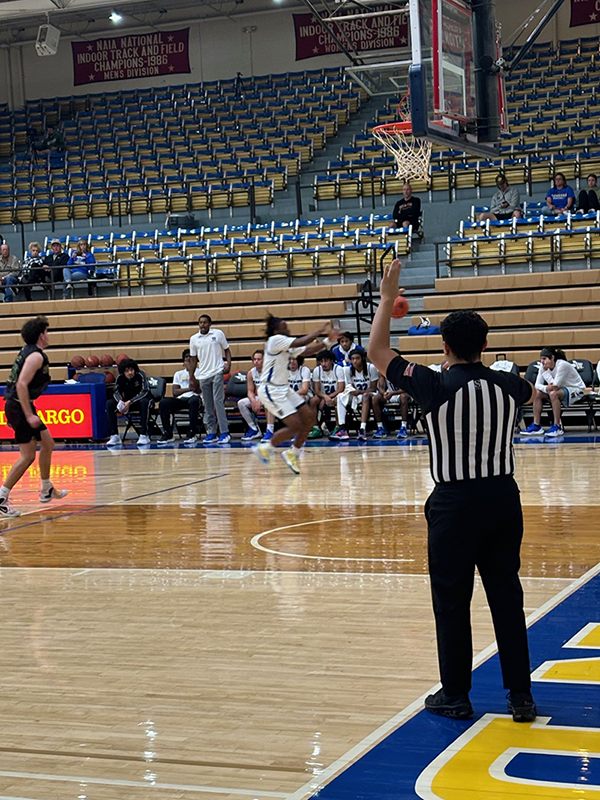
Assistant Professor and Research Fellow for the Lyons School of Accounting Jason Schwebke, Ph.D., encourages his students to discover what they enjoy in life and to build their network outside of the classroom. Leading by example, in addition to teaching at the Rawls College of Business, Schwebke also teaches a basketball officiating class at the Texas Tech URec (formerly known as the recreation center).
"I tell my students to get involved in something that interests them beyond the classroom. It can be anything," he says.
As an official, he emphasizes the need to make quick judgement calls and understanding the rules. Skills, he says, that are transferable to real-world situations.
Last semester at the URec, he met three Rawls College undergraduate students, Taven White, Colin Cromeens, and Nicholas Garza.

“I actually had no idea when we first met that all three were business majors at Rawls,” he said.
Knowing the ambition they had, Schwebke introduced them to an opportunity to referee at the college level – an opportunity they immediately pursued.
Sophomore finance major Taven White’s father introduced him to refereeing around 14 to 15 years old.
“He is an outstanding official with a ton of experience,” White said. “He introduced me to Jason Schwebke, who took me in and helped me even more with my officiating.”
On the other hand, junior accounting major Colin Cromeens and senior business management major Nicholas Garza both learned about the referee job through a friend involved in intramural sports. The two were already working at URec when they were introduced to Schwebke through the basketball officiating class he taught this past fall.
“We took Dr. Schwebke’s class this past fall, and in the first week, we wrote out our goals,” Garza shared. “One of mine was to work at the college level later down the road. I had no idea he would give each of us the opportunity this season to do that.”
White echoed that sentiment, adding, “We all signed up for chapter ball because Schwebke saw the potential we had.”
With Schwebke’s help, they are now on to refereeing for the men’s junior college basketball team in Lubbock and are more excited than ever.
Cromeens said, “Jason Schwebke called me and told me that there was an opportunity to officiate at the college level and asked if I was interested, with a few conditions attached that I had to fulfill.”

Each of them credits Schwebke as a key factor in their success, expressing deep gratitude for his guidance, while acknowledging the dedication and hard work it took them to get there.
“The intramural season starts around the same time that high school and junior college ends, so I spent about four to eight hours a week with the rec this semester,” Cromeens explained. “But when high school and junior college were in season, I would spend anywhere from six to 15 hours a week officiating games and driving to and from locations."
White achieved significant success through his officiating experiences, earning a spot to referee at the National Intramural-Recreational Sports Association (NIRSA) Regional Tournament and to advance as a referee to the NIRSA National Basketball Championship.
When asked how a student can achieve success in and out of the classroom, White explains that it comes down to personal effort.
“Develop strong time management skills, actively participate in class, and seek opportunities for networking and personal growth,” White suggested. “I believe these skills are crucial because success in school is not just about grades, but about building the skills, connections, and habits that will set students up for long-term success in their careers and personal lives.”
These students’ journey serves as proof that, with enough ambition, any student can create their own path. A path formed thanks to the connection on the court and in the classroom.
